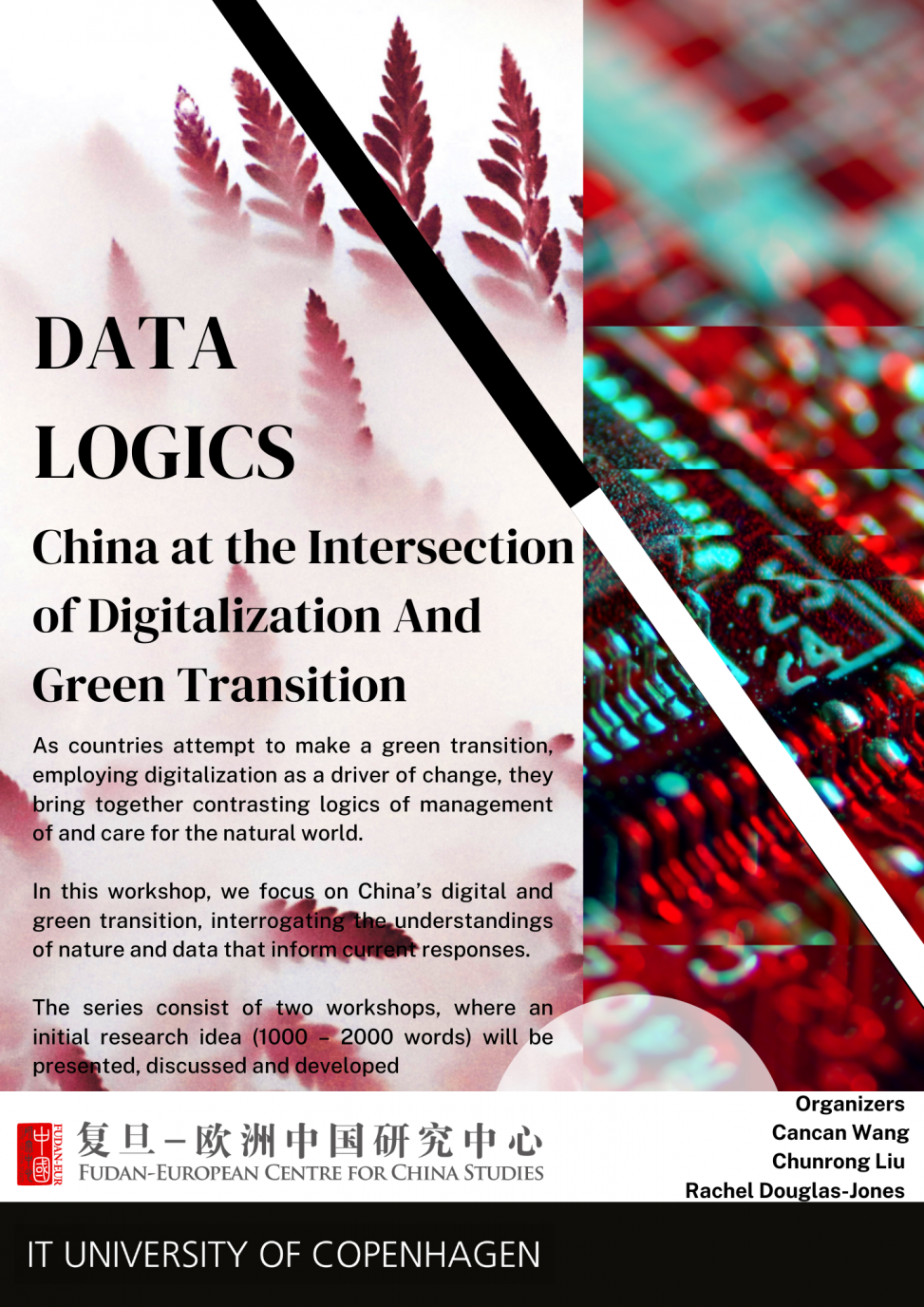Organised by Cancan Wang†, Chunrong Liu ‡. and Rachel Douglas-Jones †
As countries attempt to make a green transition, employing digitalization as a driver of change, they bring together contrasting logics of management of and care for the natural world. In this workshop, we focus on China’s digital and green transition, interrogating the understandings of nature and data that inform current responses. We ask two intertwined questions
- First, How do cultural understandings of nature inform both its management and its transformation into data?
- Second, How do different logics of data and digitalization shape the initaitves that different social actors create to engage with the green transition?
To answer these questions, we bring together scholars from across disciplines such as geography, anthropology, sociology, China studies, organization studies, critical data studies, corporate social responsibility, science and technology studies and cultural history to examine the meeting points where nature is made into something upon which we can invervene. We are interested in the technologies – interpersonal, moral, bureaucratic, managerial, digital and quantified – through which these transitions are being enacted.
Content
The workshop will stage dialogues across disciplines, bringing together Chinese case studies. Papers may use empirical or conceptual interventions as a point of departure. Whether a history of how rivers contribute to ecosystems services or an ethnography of corporate carbon emission, the conversations at this workshop will draw on different disciplinary traditions to explore data logics performed in and through the following:
- Quantification initiatives of individual and organizational behaviours, including but not limited to policies on green auditing, social credit mechanisms, and other moral and numerical incentives.
- Datafication of nature through environmental sensing, with a focus on organizational processing and management of the resulting data.
- Institutionalisation and organizational forms that are emerging at the intersection of green and digital transitions, including key actors, figureheads and enthusiasts within the settings of corporate, network or emergent organizational arrangements.
- Governance mechanisms and styles in state and corporate settings, with a particular interest in decision-making rights and accountability mechanisms, such as green auditing policies.
- Financialization interventions such as loans, guarantees and various financial schemes, and other financial instruments used as steering devices for corporate action.
We are open to a range of methods and approaches, including cultural analysis, policy analysis, social media analyses, critical management studies and finance analyses.
Format
- The first workshop focuses on idea development and will involve the submission of a 1000-2000 word paper outline. It will take place on October 10/11, 2022, Oslo.
- In order to participate, please submit a one-pager with a title and an abstract on the topic you would like to discuss by September 26th, 2022. We will then distribute the one-pagers to the participants before the workshop.
- The second workshop focuses on the development of draft papers, generating cross workshop themes with designated respondents. It will take place online on November 28/29, 2022. Paper feedback will be scheduled according to relevant timezones of participants.
- Full papers will be due May, 2023.
Outcome: The planned outcome of this workshop is a special issue or edited volume, venue to be decided in collaboration with participants and dependent on the resulting submitted papers.
† IT University of Copenhagen
‡ University of Oslo, Fudan University
Funded by Fudan-European Centre for China Studies, the University of Oslo
In collaboration with Moving Data-Moving People Independent Research Council Denmark

Leave a Reply